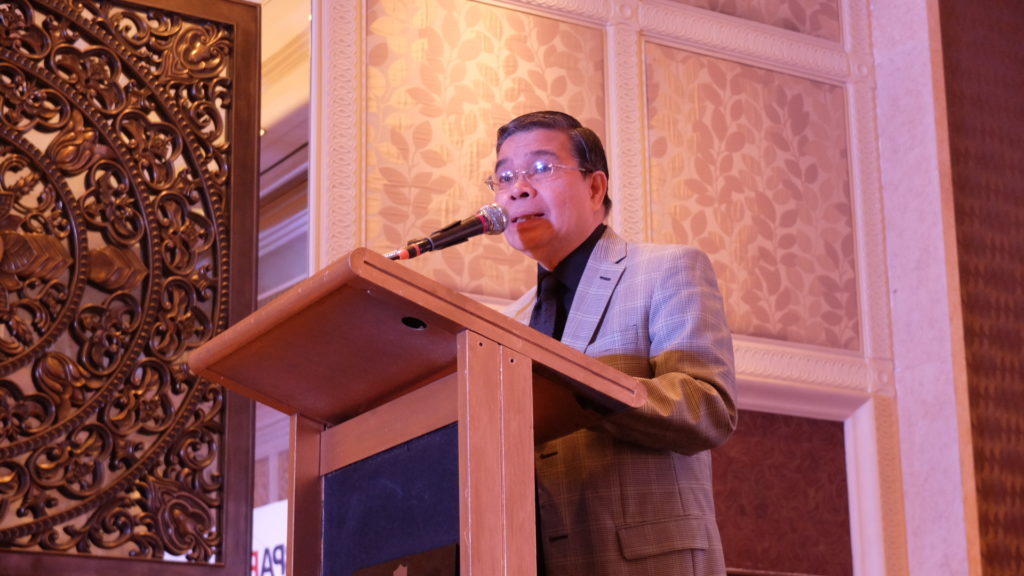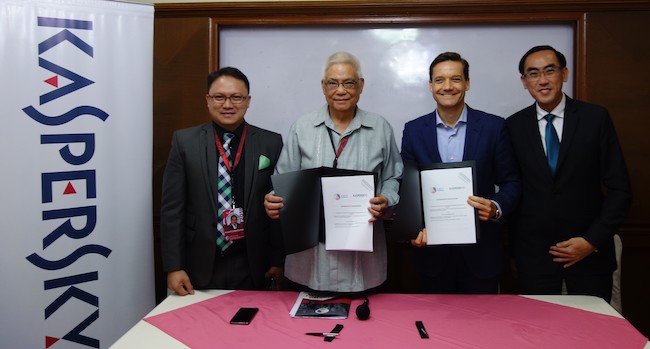In his first public speaking engagement as secretary of the newly formed Department of Information and Communications Technology, Rodolfo A. Salalima revealed he has ordered the drafting of a memorandum circular and an executive order that would help telecommunications companies “further improve their services.”

DICT Secretary Rodolfo A. Salalima: “All people in the Philippines have a right to expect from all of us, particularly from the telcos, good public service.” PHOTO: MELBA BERNAD
“Republic Act 10844 indirectly states that the right to telecommunicate is a statutory right in this country, therefore all people in the Philippines have a right to expect from all of us, particularly from the telcos, good public service,” says Salalima who was sworn into office on June 30.
RA 10844 is an act creating the DICT and was signed into law by former President Benigno S. Aquino III on May 23, 2016.
As a result of RA 10844, five agencies were abolished, namely: Information and Communications Technology Office (ICTO); National Computer Center (NCC); National Computer Institute (NCI); Telecommunications Office (TELOF): National Telecommunications Training Institute (NTTT); and all operating units of the Department of Transportation and Communications (DOTC) with functions and responsibilities dealing with communications.
Delivering the keynote address during the launch of the IT-BPM Roadmap 2022 last July 18, Salalima revealed he has ordered the drafting of a memorandum circular which directs the National Telecommunications Commisssion to resolve within four months the trial and resolution of public service applications submitted to the NTC.
“A trial must be only for three months, and the resolution of the case must be one month from date of submission, that’s a total of four months. Not a year or thereafter,” said Salalima. “Delay is an opportunity or cause for corruption. Public service cannot wait. All applications must be resolved in favor of public service.”
Salalima has also ordered the drafting of an executive order that directs all local government units in the country to process, approve permits, and applications of all telecommunications companies within three days of submission.
“This has been a cause for delay of rendering improved public services. This has been raised by the telcos as a cause why speed of internet services is slow. They have done a lot but they need to further improve their service. I am using the word ‘further’ because I do not want to demean the services of the telcos,” noted Salalima.
The DICT chief has also ordered agencies under the DICT to process permits and documents within one to two days.
Inventory of frequencies
Salalima also touched on the issue related to frequencies which, he says, is crucial to the operation of the telcos when it comes to servicing the public.
“This is the reason why to my mind, without preempting the Philippines Competition Commission, PLDT and Globe had to purchase control of the holding company of San Miguel Corp. so that at least they can have a portion, not the entirety, of the frequency needed for them to further improve their service.”
Salalima stressed that he will let the PCC resolve the issue involving Globe, PLDT, and SMC. “Understand that even our constitution does not prohibit monopoly. Only monopolies that restrain trade are prohibited, therefore, they are to be sanctioned and penalized.”
Still on the issue on frequencies, Salalima revealed that he has ordered an inventory of all frequencies still available, frequencies already assigned, and frequencies assigned but not used.
“Frequency is a scarce public resource and the telcos need as much frequency because of the blooming and blossoming use of data correspondence via the internet,” said Salallima, adding that frequencies assigned but not being used have to be reassigned to telcos who can make effective and efficient use of these frequencies.
“I do not want public telephone entities to be warehousing frequencies. Meaning, getting assigned frequencies from government, storing it without using it but using it for speculative purposes. That is contrary to Republic Act 7925 (The Public Telecommunications Policy Act), which says that all frequencies must be given or assigned only to those who can make an effective and efficient use of the frequency.”
Salalima also revealed that he has spoken with executives of Globe, PLDT and NTC and has ordered them to inspect and verify all the services they are rendering to government agencies. “I have asked them to verify the connectivity of these agencies, go throughout the country, prioritizing Metro Manila and Davao, and see to it that they render good public service.”













































































































